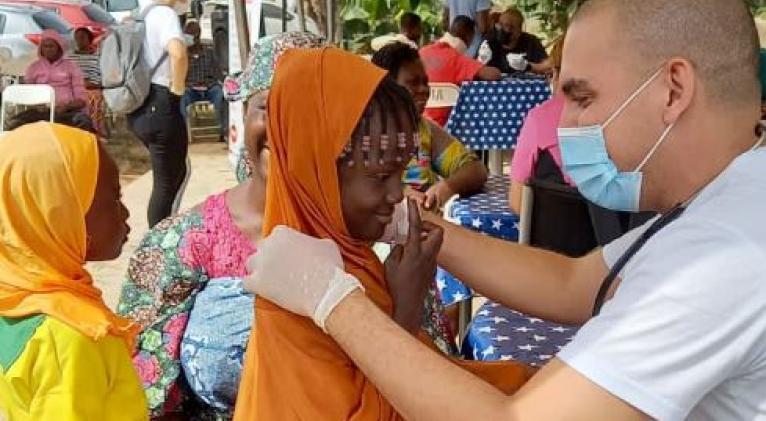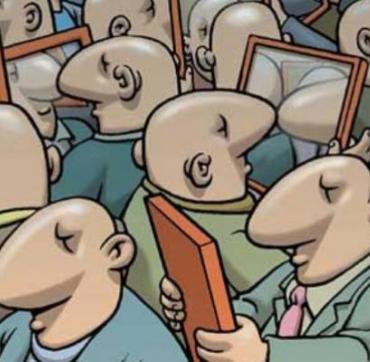The most valuable gift
especiales

“Good things must be done without calling the universe to see you pass”
José Martí
But the universe ends up finding out about everything. One phone call is enough: “In Ghana, with the help of the Cuban ambassador there, something really wonderful is being done there,” someone said in Havana. New technologies and a number in WhatsApp facilitate the live communication with that side of the world.
The Republic of Ghana is a country located in sub-Saharan Western Africa. A nation with gold; hence its history of Portuguese, British, Danish, Swedish, and even Prussian colonizers. The so-called “Gold Coast” underwent major wounds from colonialism, and inherited the English language as its official language for nearly 30 million Ghanaians.
Cuban-like Black Peas
Ghana was the first country in the region to establish diplomatic ties with the revolutionary Cuba, on December 23, 1959. A milestone in common history, crowned by the meeting of Commander in Chief Fidel Castro with the then Ghanaian President Kwame Nkrumah, in the legendary Hotel Theresa in Harlem, that revolutionary shelter in the heart of the empire.
Fidel's relations with President John Jerry Rawlings, who headed the Ghanaian government between 1981 and 2001, based on mutual respect and admiration, brought bilateral relations to their highest level. Rawlings's various visits to Havana strengthened that affection between the two leaders.
As a result, more than two thousand professionals from the African country, many of them doctors, have graduated in Cuba; young people who at the age of twelve began their studies in the junior high schools located in the Isle of Youth. Today, they are renowned specialists, close friends of Cuba who have contributed with their knowledge to the socioeconomic development of their home nation; grateful women and men, who every time their close their eyes, they savor the rich Cuban-style black beans.
And that affection towards their brothers and sisters in Cuba is today still more alive than ever. Recent official donations from the African country arrived in Cuba to support medical supplies amid the very tough times caused by the COVID-19 pandemic and after the explosion at the Supertanker Base in Matanzas.
One good turn deserves another
A brigade made up of 26 Cuban health specialists is working in Ghana today, part of the collaboration agreement signed by both countries. These are outstanding professionals who provide knowledge and effort, many of them working at remote locations within the vast Ghanaian geography. But... that is not the news.
Just over a year ago, exactly in October 2021, during a meeting of ambassadors (quite a common practice in diplomatic corps), the representative of Sierra Leone asked their colleagues for help in donating clothing, shoes and food to some widows taking refuge in a church in Santa Maria, a town in Accra, the capital city.
They were women who lived in the porches and had been victims of rape, and did not have enough to eat.
With the bright spark that characterizes her, Anette Chao García, the Cuban ambassador in Ghana —then recently appointed to her position—, proposed to evaluate all the possibility of making a much more valuable and lasting gift. "Clothes break and get old, but health and education are gifts that are always appreciated and no one can take them away," was her irrefutable argument. And she proposed taking, along with the clothes, some Cuban doctors and doing a day for health.
Thus, on November 13, 2021, that first experience, with the support of the ambassadors of Mexico, South Africa and Sierra Leone, as well as the head of mission of Peru, who even offered to serve as an interpreter during the day, kicked off. Other needy people joined the widows, more than 300 were treated free of charge that day by Cuban doctors, who unanimously responded to the request of Ambassador Anette. It was a success and a nice experience for everyone.
From now on, one Saturday every month, the Health Days are held in vulnerable communities, not only in the capital city, but in other remote Ghanaian regions. It is a practice that has earned the respect and admiration of diplomats, the appreciation of the residents and the authorities, and the positive impact on the country's press.
The Health Days are held in coordination with the authorities of each place and they are the ones responsible for the basic medicines. The contribution of the Cuban embassy consists in providing free medical care with the presence of doctors from different specialties.
Diplomats from other countries, enthusiastic about the results, have also taken care of acquiring the medicines, even buying them, while the few members of the Cuban state mission (the embassy with Anette leading things), together with their children, are in charge of organizing the lines and distribute the medicines.
Normally, the beginning of the Health Day in the most remote places is usually complicated, because the inhabitants are not used to white doctors treating them without charging them anything. The first patients arrive cautiously. But then, there is a moment when the queues become huge and people just keep coming. On one occasion, 15 Cuban doctors were giving consultations from 11 am to 4 pm, and provided care to over 1,600 people.
More could be added to those beautiful moments lived, sometimes even humorous, and also hard, by the medical brigade and the embassy in these open-hearted adventures.
Dr. Antonio Menéndez, from Las Tunas, treasures an unforgettable memory and photo, where he is seen with a little girl. He tells:
«She was an 11-year-old girl. She approached me and told me that one day she would also be a doctor to cure many of her friends, and she wanted to study medicine in my country.
«She then sat by my side all the time and served as an interpreter for me. And almost at the end of the day, I was told she was an orphan living with her grandmother, an old woman who was also my patient that day. »
We learned from one special person…
Interviewing Ambassador Anette Chao García via WhatsApp is a very difficult task. She prefers to talk about doctors, the group effort, the emotions of others. This young woman, with such a high responsibility, does not stop moving throughout the vast Ghanaian geography, and takes care about the most dissimilar matters, diplomatic ones, which are not few; but she, too, gets tense and does not sleep when a Cuban doctor falls ill with COVID hundreds of kilometers from Accra; although one day later she appears rosy and smiling during an interview of one-plus hour, in perfect English, to a top TV program on Ghanaian Television.
How does Anette think? Here is a summary of some of her quotes copied from her messages, which portray this very Cuban woman:
“Sometimes we make the monthly Health Days coincide with historical dates for Cuba, or our relations with Ghana, but it is not the most important thing. Helping is what really matters most. For Cuban doctors here, it is a way of doing something else in a health system that is not public. It is the way to help without asking for anything in return.
“Today (November 28, 2022) we did it to pay tribute to the Commander in Chief…
“The first surprise of the residents, who see our arrival in their remote communities as something weird, ends up with a lot of gratitude to Cuba.
“The Ghanaian authorities are also happy, and we are now concerned about the number of request we are receiving, which are skyrocketing. Sometimes we can't cover everything, but we always do a little more.
“… And we will carry out an activity where the doctors will leave their white coats to cook Cuban food, as doctors of the soul, for Ghanaian diplomats and officials.
“I am very grateful that all this is published, because I would like to reward their efforts. I talk about these issues in every chance, interview I grant.
“We have the honor of having very human doctors. There is so much love in them that happiness fills them when I announce that there will be a new Health Day. Life is seasoned with that help that we give to those who cannot access medical care, something that is so normal in our country.
“When the ambassador of Sierra Leone made the proposal to donate clothes and shoes… Since we are from a very special nation, and we learned from a very special man (Fidel Castro), I proposed that we could do something else, something that would really change the lives of those people.”
Translated by Sergio A. Paneque Díaz / CubaSí Translation Staff














Add new comment